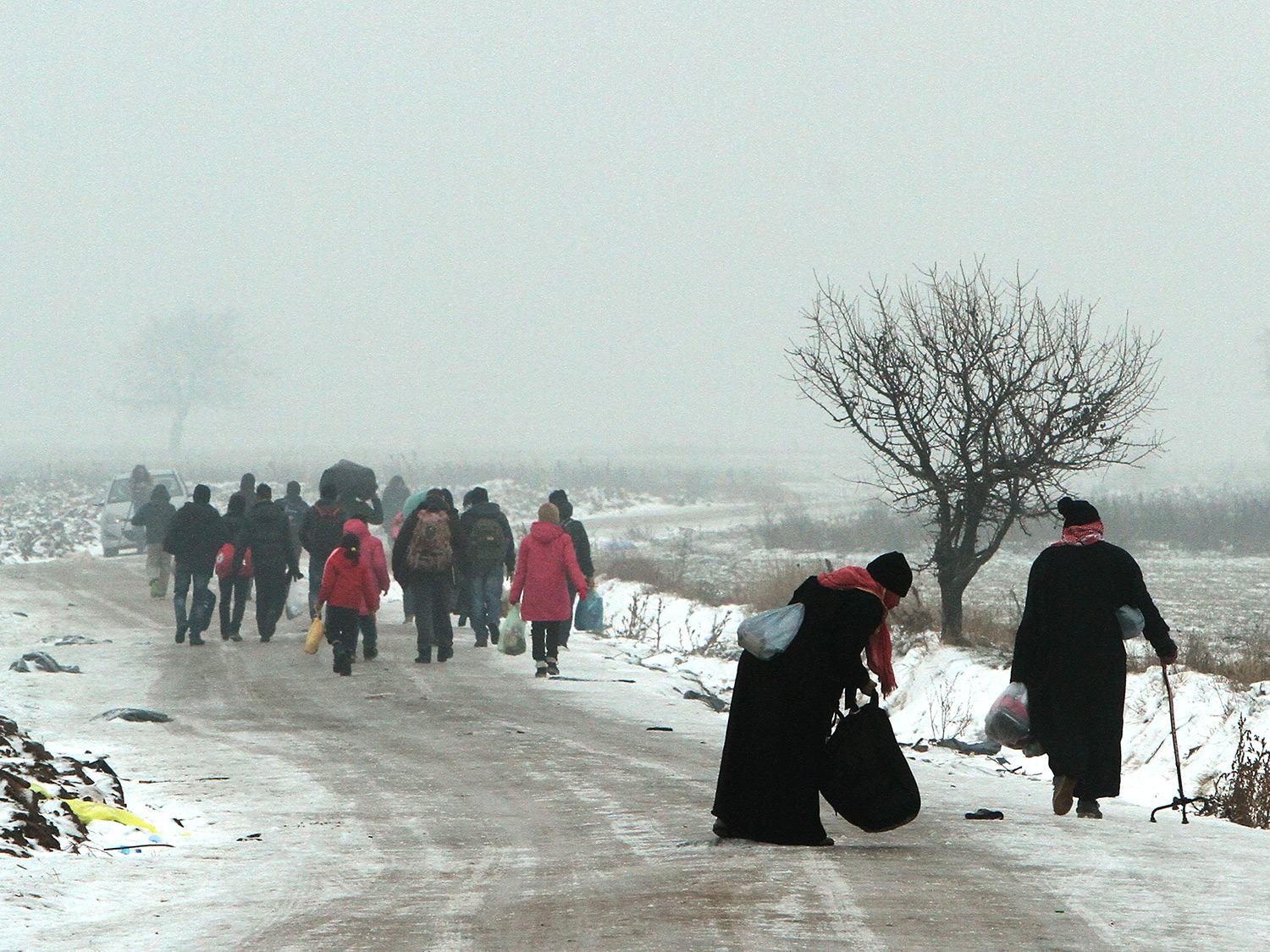

Near Belgrade, nearly 2,000 migrants are stranded outside Serbia’s overflowing shelter system, unable to continue past the sealed borders. They now have no choice but to survive a lethal freezing spell that descended on the Balkans.
Boris Babic -
They knew when they left home to try to make it to Europe that it would be hard. They knew that they would have to brave the elements.
But it’s one thing knowing that when you leave your home. It’s quite another experiencing a European winter without adequate protection. And, with winter weather expected to continue for the foreseeable future, it’s not clear how migrants stranded across the continent will fare.
Near Belgrade, nearly 2,000 migrants are stranded outside Serbia’s overflowing shelter system, unable to continue past the sealed borders. They now have no choice but to survive a lethal freezing spell that descended on the Balkans.
“The last three nights were unbearable,” Asif, an 18-year-old Afghan, said. “We squat and squeeze together around a fire and shiver. Maybe we can doze off a couple of hours. The rest of the time we shiver.”
Aziz and a handful of friends he has travelled with are squatting in one of the derelict railroad warehouses behind the Serbian capital’s main train station.
Serbian authorities estimate that there are between 1,000 and 1,200 people in the warehouses. Aid organisations such as Doctors Without Borders and charities helping the migrants put the number at close to 2,000.
According to UNHCR Serbia, the shelters house around 6,000 people and are beyond full.
The temperature in Belgrade dropped to minus 15 degrees Celsius early on Monday. Over the weekend, the powerful eastern wind chilled the concrete interior even further, the migrants said.
The largest building houses the largest population, as it is partially heated. Doctors Without Borders installed a dozen petrol heaters with fans, blowing warm air through ducts and windows, taped to keep at least some of the chill out.
“It brings the temperature up to around zero, as long as Koshava (the eastern wind) doesn’t blow,” a technician said. But, with the air still too cold, the migrants start fires inside to warm themselves up, filling the interior with acrid smoke.
The warehouses are separated by defunct railroad tracks. The passage serves as a toilet and reeks of urine and faeces.
Other warehouses are much colder and less densely populated. The fires are primarily built on railroad cross ties, which were treated with chemicals for durability against the weather and burn unwillingly, releasing stinging smoke.
The migrants try to feed the flame by throwing rags, discarded clothes and plastic on the thick beams scrapped from abandoned tracks, producing even more noxious fumes.
“It is very cold, and very bad air from the fires. We cough all the time, but we have nowhere else to go,” said Afghan Kaship Han, 18.
Han registered with Serbian authorities, but all he got was a paper advising him that his intent to seek asylum has been recognised and giving him 72 hours to report to the camp in Presevo, 400 km back south.
“I don’t want to go back, I want to go to Hungary and then Italy. But I cannot stay here, it is terrible. People fall sick and no help comes,” he said.
The migrants now in Belgrade, as well as those currently on the Balkan route, face a different reality than those who came through Serbia earlier. Then, authorities helped organise swift and safe transit.
Now the Balkan route is blocked and those who are in Serbia have little hope of making it further into Europe. The trip has also become more expensive. People rely on smugglers to take them across borders sealed, exposing them to harm.
“I have been here two months and two months on the road before that. I spent 4,000 euros ($4,225) and now when I ask my father for money, he has no more. Now I cannot go there and I cannot go back,” Amin Jahn, 20, from Pakistan said.
Those on the road are in even more peril, risking their lives by cramming themselves into smugglers’ cars and vans for a reckless drive from one border to the next.
But, for now, the weather remains the worst threat. And the ones freezing in Belgrade might be the lucky ones. In Bulgaria, at least three migrants — a Somali woman and two Iraqis — have been confirmed dead, victims of freezing. — dpa
Oman Observer is now on the WhatsApp channel. Click here



